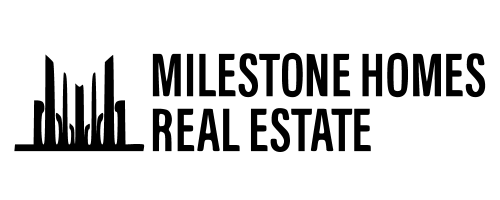Airbnb has a great opportunity in Dubai’s real estate market, as the city is a global tourism and business hub. Due to the tourism boom, there is a consistent flow of high-spending travelers looking for unique and flexible accommodation options. There is all-year-round demand from tourists visiting iconic landmarks, expats needing short-term housing, and professionals who are attracted by Dubai’s remote work visa program.
Additionally, Dubai’s government supports the short-term rental market through easy licensing and tourism initiatives, making it easier for hosts to operate legally. With a lot of options for luxury apartments and villas in Dubai, Airbnb hosts can get a high rental yield from short-term stays, especially during major events like the Dubai Shopping Festival and New Year.
How to Turn Your Property into Airbnb
Transforming your property into an Airbnb rental can be a great opportunity, offering not only a steady income but also the flexibility to showcase your hospitality and creativity. Whether you are a property investor, have a spare apartment, or a vacation home, this guide will walk you through the steps to start hosting guests and earning extra income.
1. Understand the Legal Requirements for Short-Term Rentals
In Dubai, short-term rentals are regulated by the Dubai Tourism Department. Property owners need to ensure they comply with laws related to:
- Tourism Dirham Fee: A fee charged per guest per night.
- Licensing: Obtain a Holiday Home License from the Dubai Tourism Department (DTCM).
- Emirate-specific rules: Every emirate might have different rules. For example, in Dubai, you must register with DTCM and comply with health and safety standards.
2. Choose the Right Location
- Proximity to Key Attractions:
- Dubai has many vibrant areas such as Downtown Dubai, Dubai Marina, Palm Jumeirah, Business Bay, and JBR. If your property is near popular landmarks like the Burj Khalifa, Dubai Mall, or Dubai Creek, it’s more likely to attract tourists. Business travelers might prefer properties near business hubs like Dubai International Financial Center (DIFC) or even near airports.
- Transportation Accessibility: Consider how easily guests can access your property via public transportation, taxis, or ride-sharing services. Being near the Dubai Metro, bus stations, or major highways can increase the desirability of your property.
- Neighborhood Appeal: Research the neighborhood vibe and ensure it aligns with your target market. Tourists might prefer more vibrant, tourist-centric areas, while business travelers may look for quieter, professional environments.
3. Prepare Your Property
- Deep Clean the Property: Clean every corner of your property thoroughly, including hidden areas like behind furniture and appliances. Hire professional cleaners to ensure high standards of cleanliness.
- Declutter the Space: Remove unnecessary personal items to make the space feel welcoming and neutral. Guests should feel like they can relax and settle in without distractions.
- Safety Measures: Install smoke detectors, and fire extinguishers, and secure locks on all doors and windows.
- Furnish Thoughtfully: Provide comfortable furniture and essential amenities such as Wi-Fi, clean linens, toiletries, and kitchen supplies.
4. Set a Competitive Price
Research similar listings in your area to determine a competitive nightly rate. Consider factors such as:
- Seasonality (higher demand during holidays or events)
- The amenities offered in your property
- Property size and location. Use Airbnb’s pricing tools for guidance, but remember to adjust your price based on guest feedback and occupancy rates.
5. Create an Irresistible Listing
Your listing is the first impression potential guests will have of your property. To make it stand out:
- Write a Compelling Title: Highlight unique features of your property (e.g., “Cozy Cottage with Stunning Mountain Views”).
- Detailed Description: Include information about amenities, nearby attractions, and house rules.
- Professional Photos: Use high-quality images that showcase your property’s best features. Consider hiring a professional photographer.
6. Market Your Airbnb
Maximize your property’s visibility with these tips:
- Promote on Social Media: Share your listing on platforms like Instagram, Facebook, and Twitter.
- Offer Discounts: Attract initial bookings by offering introductory rates or special deals.
- Encourage Reviews: Provide excellent service to earn positive reviews, which can improve your search ranking.
7. Manage Bookings and Guests
Efficient management is key to a successful Airbnb experience:
- Respond Promptly: Reply to inquiries and bookings quickly to secure reservations.
- Communicate Clearly: Provide guests with check-in instructions, Wi-Fi details, and local recommendations.
- Maintain the Property: Regularly clean and inspect the property between stays.
8. Provide a Memorable Guest Experience
Happy guests are more likely to leave positive reviews and recommend your property. To go the extra mile:
- Welcome Gifts: Leave a small token like snacks, wine, or a handwritten note.
- Local Insights: Offer tips on the best restaurants, attractions, and activities in the area.
- Be Available: Ensure guests can reach you if they have questions or issues.
9. Monitor your Finances
Monitoring your finances effectively is crucial when running an Airbnb business, as it allows you to keep track of your profits, expenses, and overall financial health.
- Rental Income: Start by tracking your monthly or seasonal rental income. This is the amount you earn from guest bookings before Airbnb’s service fee is deducted.
- Cleaning Fees: Many hosts charge a cleaning fee in addition to the nightly rate. This fee is typically paid by guests and can vary depending on the size of your property and the amount of cleaning required.
- Additional Services: If you offer add-ons such as airport transfers, guided tours, or early check-in/late check-out options, track these additional earnings separately.
- Long-Term Stays: If you have guests staying for an extended period (e.g., week-long or monthly stays), track the income from these bookings and make sure you offer discounts for longer stays.
10. Stay Updated about Any Changes
Staying updated and adapting to the changing dynamics of the Airbnb market in Dubai is crucial for maintaining the profitability and success of your short-term rental business.
- Regulatory Changes: The regulatory policies for short-term rentals in Dubai can change, so it’s important to stay updated on any new laws or amendments that may affect Airbnb hosts.
- Tourism Fees: Dubai imposes a tourism fee (also known as the DTCM Fee) on guests staying in short-term rentals. This fee is typically a small percentage of the booking price or a fixed fee per night. Make sure to adjust your pricing or taxes accordingly to remain compliant with local rules.
- Health and Safety Standards: Following health and safety protocols is important, especially in light of past global health crises. Stay updated on safety measures.
- Licensing Requirements: Dubai has specific licensing requirements for short-term rental properties. Ensure your property is registered with the DTCM, and that you have the necessary permits in place
In conclusion, transforming your property into a profitable Airbnb in Dubai requires a combination of planning, adaptability, and attention to detail. From preparing your property and setting competitive prices to staying updated with industry trends, each step is important for a successful short-term rental business. By continuously improving your property, it is an easy process to set up your Airbnb. With the right approach, your Airbnb can not only generate steady income but also provide an exceptional experience for guests, ensuring long-term success and profitability.




